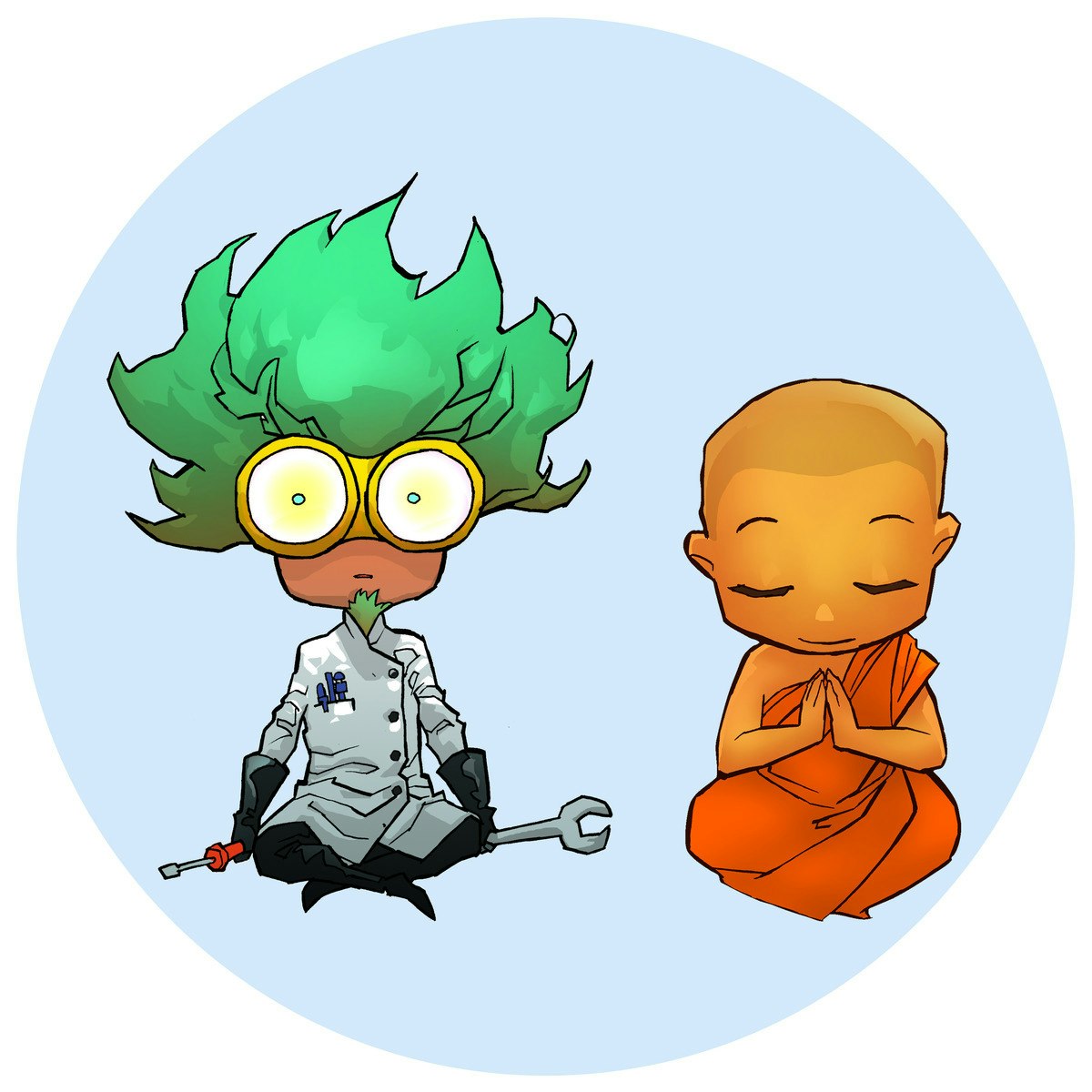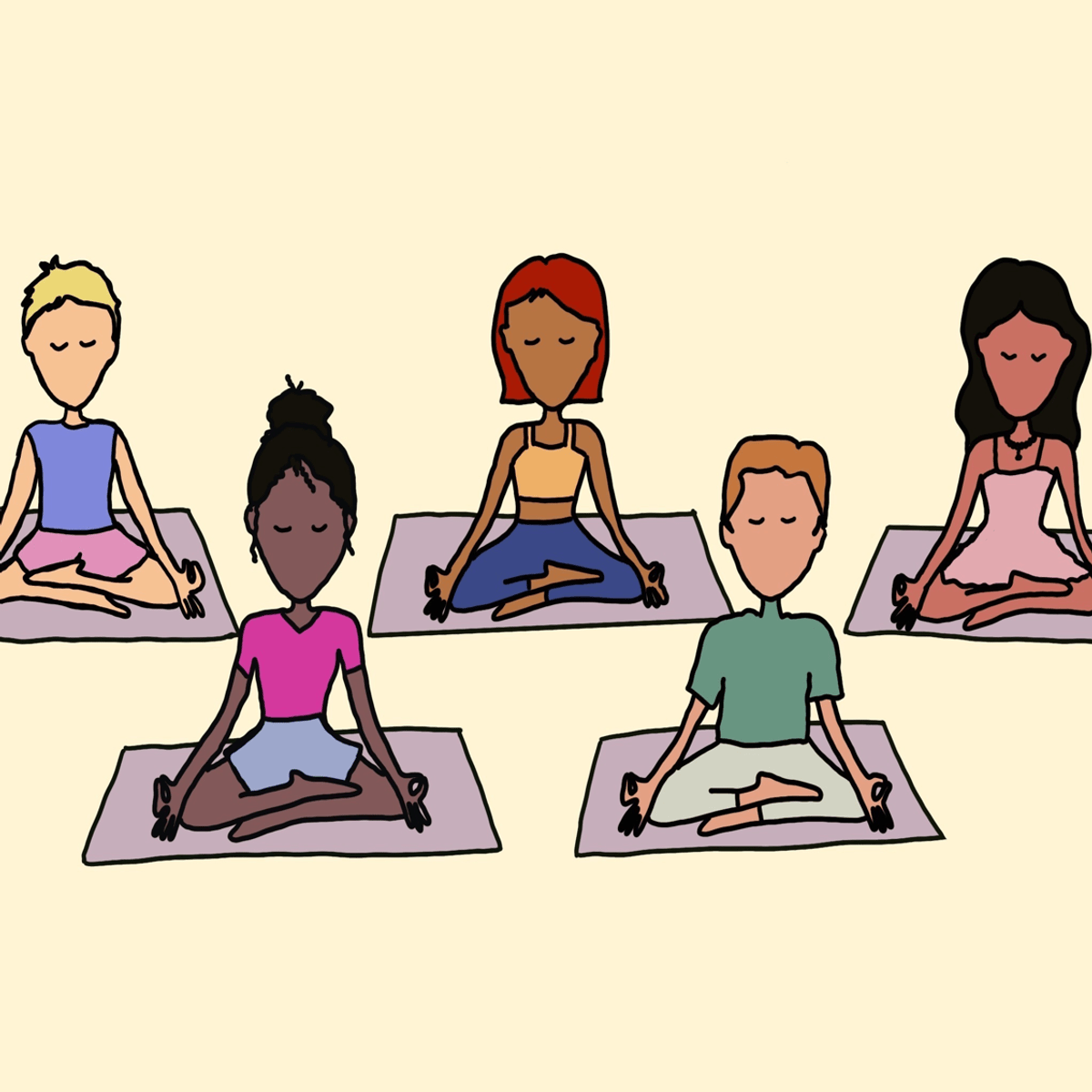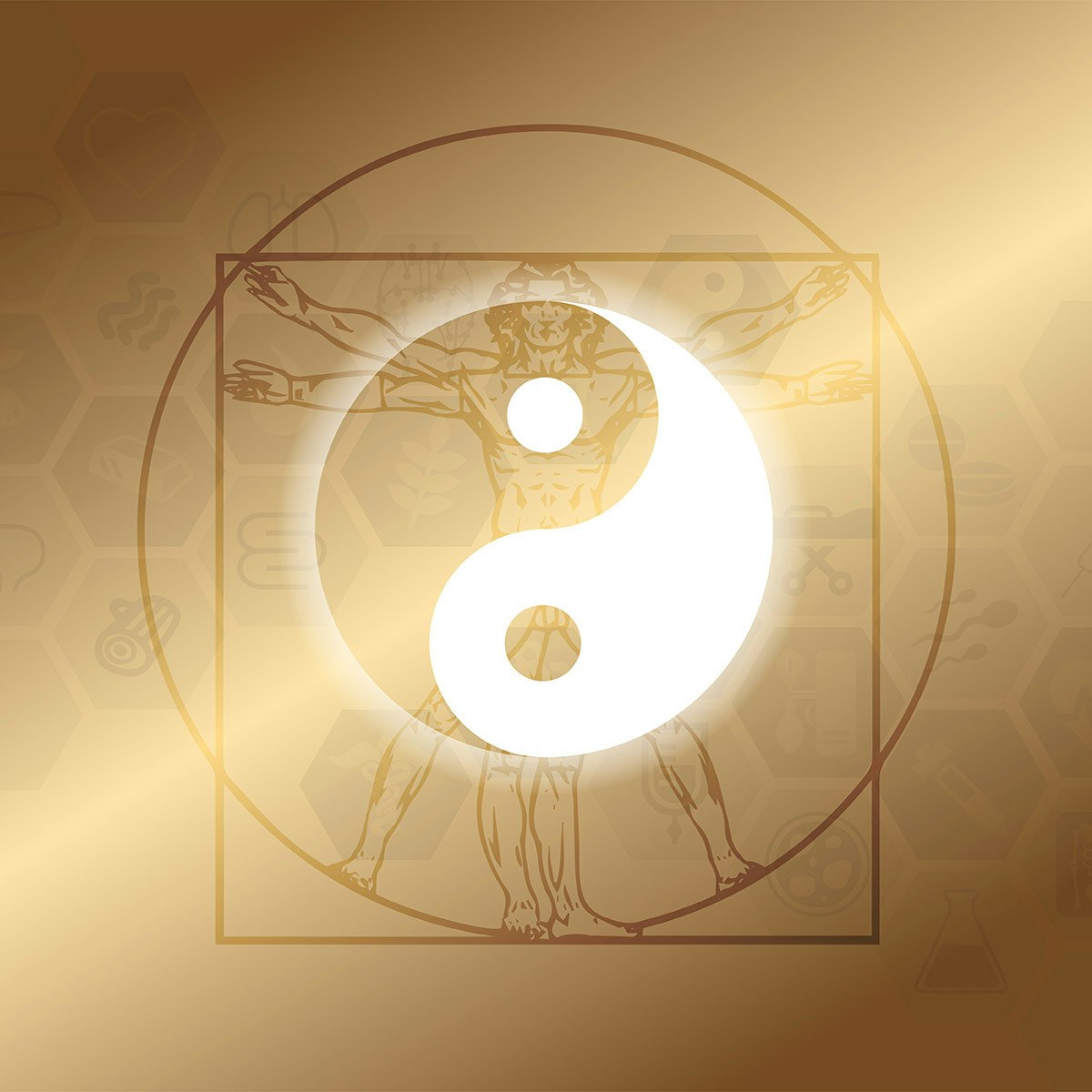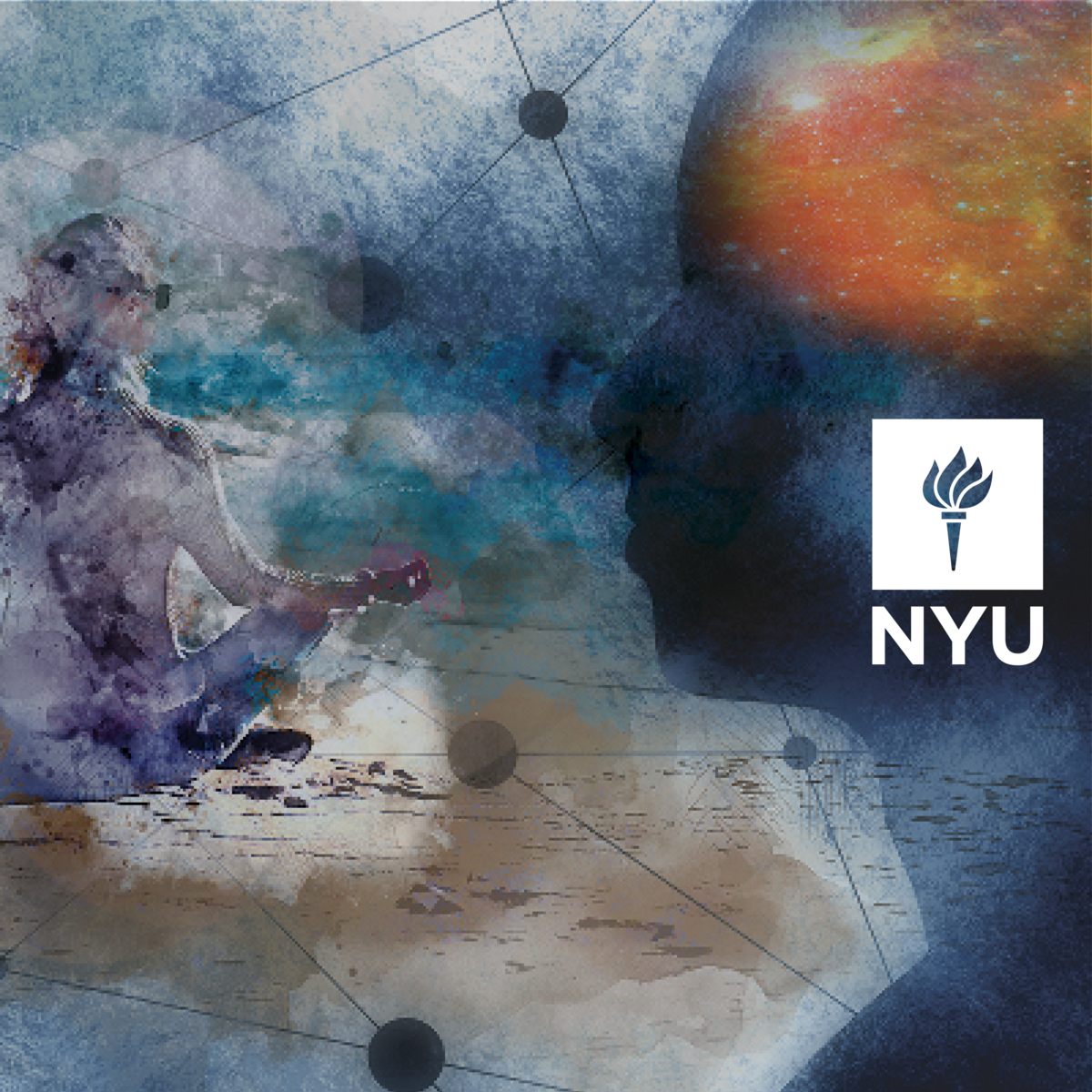Meditation Teacher
barking on the Path of a Meditation Teacher
A Meditation Teacher is a guide who instructs individuals or groups in the practice of meditation. This role involves more than simply leading sessions; it encompasses fostering an understanding of meditation techniques, explaining the principles behind the practice, and supporting students as they cultivate their own personal meditation journey. The work of a meditation teacher can be profoundly engaging, offering the opportunity to witness and contribute to the positive transformation in others' lives. It also allows for a deep and continuous personal exploration of mindfulness and contemplative practices.
For those considering this path, the prospect of helping individuals find inner peace, reduce stress, and enhance their overall well-being can be deeply motivating. Furthermore, the growing recognition of meditation's benefits in various sectors, including healthcare and corporate wellness, opens diverse avenues for application and impact.
Introduction to Meditation Teaching
Embarking on a career as a Meditation Teacher means becoming a facilitator of inner exploration and peace for others. It's a role that blends personal practice with the art of instruction, guiding individuals to navigate their minds and emotions with greater awareness and skill.
Definition and Scope of a Meditation Teacher
A Meditation Teacher is an individual who guides and supports others in learning and deepening their meditation practice. This involves teaching various meditation techniques, explaining the underlying principles, and helping students understand how meditation works. The scope of a meditation teacher's work can vary widely, from leading group classes in community centers or yoga studios to offering private coaching, corporate wellness programs, or specialized workshops. Some teachers may focus on specific traditions or styles of meditation, while others might offer a broader approach. The core function, however, remains consistent: to empower individuals to cultivate their own consistent and beneficial meditation practice.
The role extends beyond simply reciting instructions. Effective meditation teachers create a supportive and safe environment for students to explore their inner experiences. They may also help students recognize the signs of meditative states and provide a vocabulary to understand key concepts related to mindfulness and meditation.
For those considering this path, understanding the breadth of what a meditation teacher does is crucial. It's not just about personal proficiency in meditation but also about the ability to communicate, connect with, and guide a diverse range of individuals on their unique meditative journeys.
Historical and Cultural Roots of Meditation Instruction
The practice of meditation has ancient origins, with the earliest documented records tracing back to Vedantism, a Hindu tradition in India, around 1500 BCE. Historians, however, believe that meditation was practiced even earlier, possibly as far back as 3000 BCE, as suggested by archaeological findings in the Indus Valley Civilization depicting figures in meditative poses. Between 600 and 500 BCE, other forms of meditation developed in Taoist China and Buddhist India, though the precise origins, especially of Buddhist meditation, remain a subject of historical discussion.
Traditionally, meditation was not taught as a standalone technique but as an integral part of spiritual traditions like Buddhism, Yoga, and Daoism. The role of the meditation teacher, often a priest, monk, yogi, or guru, was to impart not only the techniques but also the ethical principles, worldview, and way of life associated with that tradition. For instance, the Buddha, who lived in the 6th century BCE, learned from yogis of his time before developing his own methods and teaching thousands. In Japan, the practice of Zen meditation was introduced in the 7th century AD by a monk named Dosho, who had discovered it in China. The term "meditate" itself, derived from the Latin "meditatum" meaning "to ponder," was introduced in the 12th century by Monk Guigo II.
The transmission of meditation practices to the West gained momentum in the 18th century. Significant milestones include the 1927 publication of the "Tibetan Book of the Dead," which captured Western interest. The 1950s saw the rise of the Vipassana (insight meditation) movement in Burma and the establishment of Transcendental Meditation (TM) by Maharishi Mahesh Yogi, who was inspired by his teacher Swami Brahmananda Saraswati. These developments, along with the travels of Eastern teachers to the West and Western thinkers to the East during the 1960s and 70s, led to a revival and adaptation of meditation practices in Western cultures.
These historical and cultural underpinnings are important for aspiring meditation teachers to understand. They provide context to the diverse array of techniques and philosophies that exist today and highlight the rich lineage of contemplative practice.
Modern Applications in Wellness and Healthcare
In contemporary society, meditation has found widespread application in wellness and healthcare settings, driven by growing awareness of its benefits for mental and emotional well-being. The demand for meditation is increasing as individuals seek effective ways to manage stress, anxiety, and depression, and to enhance overall cognitive and emotional health. This has led to the integration of meditation and mindfulness-based therapies into various sectors.
Healthcare professionals are increasingly recognizing meditation as a valuable tool. It is used in hospitals, clinics, and therapy practices to help patients manage pain, reduce stress associated with illness, and improve mental health conditions like anxiety and depression. For instance, mindfulness-based stress reduction (MBSR), a program developed by Jon Kabat-Zinn in the late 1970s, integrates Buddhist teachings with Western science for stress management and has influenced research into meditation as a healing modality. Studies have shown that even brief periods of meditation can positively impact emotional processing and reduce stress reactivity.
Corporate wellness programs are another significant area where meditation is being adopted. Companies are recognizing the benefits of mindfulness for improving employee focus, productivity, and stress management. This has created opportunities for meditation teachers to offer workshops and ongoing programs in workplace settings. Educational institutions, from schools to universities, are also incorporating mindfulness and meditation to help students improve focus, manage academic stress, and enhance emotional regulation. The global meditation market is substantial, valued in the billions of dollars and projected to grow, indicating a strong and sustained interest in these practices.
Understanding these modern applications is crucial for aspiring meditation teachers. It highlights the diverse environments in which they can work and the varied needs of the populations they might serve. This knowledge can inform their training choices and career development.
To begin your journey into understanding the foundational principles of meditation and its historical context, consider exploring resources that delve into these areas. These courses can provide a solid understanding of different meditative traditions and their applications.
These courses offer a deep dive into the philosophical and practical aspects of meditation, which are essential for anyone looking to teach.
For further reading on the core concepts of mindfulness, which is often a central component of modern meditation teaching, these books are highly recommended.
Core Skills and Competencies
Becoming an effective Meditation Teacher requires more than just a personal meditation practice. It demands a specific set of skills and competencies to guide others successfully. These abilities ensure that a teacher can not only impart knowledge but also create a supportive and transformative learning experience for their students.
Mindfulness and Emotional Intelligence
Mindfulness, the practice of being present and fully engaged with the current moment, is a cornerstone skill for any meditation teacher. It allows teachers to be fully attentive to their students, perceive subtle cues, and respond thoughtfully. Emotional intelligence, which includes self-awareness, self-regulation, empathy, and social skills, is equally vital. It enables teachers to understand and manage their own emotions while also recognizing and responding appropriately to the emotional states of their students.
A meditation teacher with strong mindfulness and emotional intelligence can create a safe and compassionate space for learning. They can model emotional regulation and provide a calm, stable presence, which is particularly important when students may be navigating challenging thoughts or feelings during meditation. These qualities also help the teacher to connect with students on a deeper level, fostering trust and openness. Research suggests that mindfulness practices can enhance emotional regulation, helping individuals to manage emotional fluctuations and respond to emotions more effectively.
Developing these skills is an ongoing process. Aspiring teachers should prioritize their own mindfulness practice and actively work on enhancing their emotional intelligence. This might involve self-reflection, seeking feedback, and potentially engaging in further training focused on these areas.
Communication and Teaching Techniques
Effective communication is paramount for a Meditation Teacher. This involves more than just clearly explaining meditation techniques; it includes the ability to articulate complex concepts in simple, accessible language. Teachers must be able to adapt their communication style to suit diverse audiences, from beginners to more experienced practitioners. Storytelling, metaphors, and clear, concise instructions can all be valuable tools.
Beyond verbal communication, non-verbal cues such as body language, tone of voice, and presence also play a significant role. A calm, centered, and encouraging demeanor can greatly enhance the learning experience. Good listening skills are also crucial, enabling the teacher to understand students' questions, concerns, and experiences, and to respond appropriately and supportively.
Various teaching techniques can be employed, including guided meditations, didactic instruction, group discussions, and question-and-answer sessions. A skilled teacher will know how and when to use different techniques to facilitate learning and engagement. They will also be adept at providing constructive feedback and creating an interactive environment where students feel comfortable sharing and learning from one another. Exploring resources on effective teaching methodologies can be beneficial for aspiring meditation instructors.
These courses can help develop the communication and instructional skills necessary for effectively guiding meditation practices.
Adaptability to Diverse Student Needs
Students come to meditation for various reasons and from diverse backgrounds, bringing with them a wide range of experiences, abilities, and potential challenges. A key competency for a Meditation Teacher is the ability to adapt their teaching methods and approaches to meet these diverse needs. This includes being sensitive to cultural differences, physical limitations, emotional states, and varying levels of meditation experience.
For example, some students may have physical conditions that require modifications to sitting postures. Others may be experiencing significant stress or emotional difficulties that require a particularly gentle and supportive approach. Teachers may also encounter students with neurodiverse characteristics, such as those on the autism spectrum, who might benefit from clearer, more literal language and alternative focal points for meditation beyond just the breath. Offering choices in practice, such as focusing on sound or movement, can make meditation more accessible.
Adaptability also involves being flexible in session planning and delivery. A teacher might need to adjust a planned session based on the group's energy or specific questions that arise. Being attuned to the group and responsive to their needs in the moment is crucial. This requires keen observation skills, empathy, and a willingness to deviate from a set script when necessary. Cultivating an inclusive environment where all students feel seen, understood, and supported is a hallmark of an effective and adaptable meditation teacher.
These books offer insights into tailoring mindfulness and meditation for different individuals and understanding the breadth of human experience.
Formal Education Pathways
For individuals looking to establish a career as a Meditation Teacher, pursuing formal education can provide a structured foundation, credibility, and in-depth knowledge. Several pathways exist, ranging from certification programs to university degrees and intensive workshops.
Certification Programs and Accredited Courses
Numerous certification programs and accredited courses are available for aspiring meditation teachers. These programs vary in length, focus, and intensity, but generally aim to provide comprehensive training in meditation techniques, teaching methodologies, and the theoretical underpinnings of contemplative practices. Accreditation by recognized bodies like the International Mindfulness and Meditation Alliance (IMMA) or the International Institute of Complementary Therapists (IICT) can lend credibility to a certification.
These programs often cover a range of topics, including different styles of meditation (e.g., mindfulness, Zen, Vipassana), the science behind meditation's effects, ethical considerations for teachers, and practical skills for leading groups and individuals. Some programs also incorporate elements of business development for those looking to start their own practice. While certification is not always legally mandatory to teach meditation in all regions, it is often beneficial for gaining insurance, hiring teaching spaces, and building confidence and credibility with potential students and employers. Many programs are offered online, providing flexibility for learners.
When choosing a certification program, it's important to research the curriculum, the instructors' qualifications and experience, the accrediting bodies, and whether the program's philosophy aligns with your own interests and goals. OpenCourser offers a wide selection of Personal Development courses where you might find suitable options.
These courses offer comprehensive training and certification for aspiring meditation teachers, covering a variety of techniques and teaching skills.
University Degrees in Psychology or Holistic Health
While not always a direct route to becoming a meditation teacher, a university degree in fields like psychology, holistic health, religious studies, or counseling can provide a strong theoretical and academic foundation. These disciplines often explore topics relevant to meditation, such as the mind-body connection, stress management, emotional regulation, and contemplative traditions. A degree in psychology, for example, can offer deep insights into human behavior, mental processes, and therapeutic approaches, which can be invaluable when guiding others in meditation.
Some universities may even offer specific courses or concentrations related to mindfulness or contemplative studies within these broader degree programs. This academic background can enhance a meditation teacher's understanding of the scientific research supporting meditation's benefits and provide a framework for integrating meditation into clinical or therapeutic settings. For individuals interested in working in healthcare or academic research related to meditation, a relevant university degree is often a prerequisite or a significant advantage.
It's worth noting that a university degree alone might not provide the specific practical training required to teach meditation effectively. Therefore, individuals pursuing this path often supplement their academic studies with specialized meditation teacher training certification programs or workshops. Exploring options within Health & Medicine or Psychology on OpenCourser can provide a starting point for finding relevant academic programs.
Workshops and Retreats for Hands-on Training
Workshops and retreats offer intensive, hands-on training experiences that can be highly beneficial for aspiring meditation teachers. These immersive formats allow participants to deepen their own meditation practice, learn teaching techniques in a practical setting, and receive direct feedback from experienced instructors. Retreats, in particular, provide an opportunity to step away from daily distractions and fully dedicate time to study and practice.
Many renowned meditation teachers and organizations offer workshops and retreats specifically designed for teacher training. These can vary in length from a weekend to several weeks or even months. The focus is often on experiential learning, with participants engaging in extensive meditation practice, practicing teaching skills with peers, and exploring the nuances of guiding different types of meditation. This direct experience is invaluable for building confidence and honing one's ability to hold space for others.
These hands-on experiences can also provide valuable networking opportunities, connecting aspiring teachers with a community of like-minded individuals and mentors. While a workshop or retreat might not always result in a formal certification on its own, it can be a crucial component of a comprehensive training path, often complementing more structured certification programs or academic studies. When considering workshops and retreats, look for those led by reputable teachers with extensive experience in both practicing and teaching meditation.
For those looking to deepen their understanding and practical skills, these books provide valuable insights into different meditation traditions and techniques.
Online Learning and Self-Study
The digital age has revolutionized how we learn, and meditation teacher training is no exception. Online learning and self-study offer flexible and accessible pathways for individuals to develop the necessary knowledge and skills, whether as a primary mode of training or as a supplement to formal education.
Digital Platforms for Meditation Training
A plethora of digital platforms now offer meditation teacher training programs and resources. These platforms range from dedicated meditation apps with teacher training modules to online course providers hosting comprehensive certification programs. The convenience of online learning allows aspiring teachers to study at their own pace and from anywhere in the world, making it an attractive option for those with busy schedules or limited access to in-person training.
Online programs often include video lectures, guided meditation recordings, reading materials, and interactive forums for discussion with instructors and fellow students. Some programs also incorporate live online sessions, one-on-one mentoring, and practical assignments where students record themselves guiding meditations for feedback. When choosing an online platform, consider factors such as the comprehensiveness of the curriculum, the credibility of the instructors and accrediting bodies, the level of support and interaction offered, and student reviews. OpenCourser is an excellent resource for finding and comparing such online courses.
It is important to approach online training with discipline and commitment. While flexible, successful completion often requires strong self-motivation and time management skills.
These online courses offer flexible ways to learn about meditation, mindfulness, and related practices from the comfort of your home.
Building a Self-Paced Practice
Regardless of the chosen training path, a deep and consistent personal meditation practice is the bedrock of becoming an effective meditation teacher. Self-study plays a crucial role here. This involves not just regularly meditating but also reflecting on one's experiences, studying foundational texts, and exploring different meditation techniques independently. A self-paced practice allows individuals to tailor their learning to their own needs and interests, going deeper into areas that resonate most.
Building a robust personal practice provides the experiential understanding necessary to guide others authentically. It allows the teacher to speak from direct experience rather than just theoretical knowledge. This journey of self-discovery is ongoing; even experienced teachers continue to learn and evolve through their personal practice. Many resources, including books, apps, and online guided meditations, can support this self-paced journey.
Setting realistic goals, maintaining a regular schedule, and perhaps keeping a meditation journal can be helpful strategies for building and sustaining a self-paced practice. It's about cultivating a personal relationship with meditation that is both profound and enduring.
These books can serve as excellent guides for developing and deepening a personal, self-paced meditation practice.
Integrating Online Resources with Formal Education
Online resources can be powerful complements to formal education pathways, such as university degrees or in-person certification programs. Students enrolled in traditional programs can use online courses, apps, and digital libraries to deepen their understanding of specific topics, explore diverse meditation techniques, or access teachings from a wider range of instructors. For example, someone pursuing a psychology degree might use online meditation courses to gain practical experience in guiding meditations, which may not be heavily emphasized in their academic curriculum.
Similarly, those who have completed a certification program can use online resources for continuing education, staying updated on new research, or exploring specialized areas of meditation teaching, such as mindfulness for children or trauma-informed meditation. Online platforms often provide access to a global community of practitioners and teachers, offering opportunities for ongoing learning and support that can extend far beyond the completion of a formal program.
The key is to be discerning and strategic in how online resources are integrated. Choose high-quality resources from reputable sources that align with your learning goals. OpenCourser's extensive catalog, featuring everything from Personal Development to Health & Fitness courses, can help learners find valuable supplementary materials. This blended approach, combining the structure of formal education with the flexibility and breadth of online learning, can create a rich and well-rounded training experience.
Career Progression and Opportunities
The path of a Meditation Teacher offers diverse opportunities for growth and specialization. From foundational roles in community settings to advanced positions in corporate or clinical environments, and even entrepreneurial ventures, there are many ways to build a fulfilling career.
Entry-Level Roles (e.g., Wellness Coach, Community Instructor)
For those starting their journey as a Meditation Teacher, entry-level roles often involve guiding meditation in community settings or as part of broader wellness coaching. This could include teaching classes at local yoga studios, community centers, fitness facilities, or even adult education programs. In these roles, the focus is typically on introducing basic meditation techniques, leading guided practices, and creating a welcoming environment for beginners.
Another common entry point is incorporating meditation instruction into a wellness coaching practice. A Wellness Coach
may use meditation as one of several tools to help clients manage stress, improve focus, or achieve other health and well-being goals. These roles provide valuable experience in working with diverse individuals, refining teaching skills, and building a foundational understanding of client needs. Networking within local wellness communities and gaining practical teaching experience, even on a volunteer basis initially, can be crucial for securing these entry-level positions.While these roles may not always offer high salaries at the outset, they are instrumental in building a reputation and a portfolio of experience. The skills honed here are transferable and form the building blocks for more advanced opportunities.
These courses can provide foundational knowledge useful for entry-level roles that incorporate meditation and mindfulness.
Advanced Roles (e.g., Corporate Wellness Consultant, Clinical Meditation Specialist)
With experience and potentially further specialized training, Meditation Teachers can progress to more advanced roles. One such avenue is becoming a corporate wellness consultant, where teachers design and deliver mindfulness and meditation programs for businesses. Companies are increasingly investing in such programs to reduce employee stress, enhance productivity, and improve overall workplace well-being. This role requires not only strong meditation teaching skills but also an understanding of corporate environments and the ability to tailor programs to specific organizational needs.
Another advanced path is working as a clinical meditation specialist, often in collaboration with healthcare professionals. This might involve teaching meditation to patients in hospitals, mental health clinics, or rehabilitation centers to help manage conditions like chronic pain, anxiety, depression, or PTSD. Such roles typically require a deeper understanding of the therapeutic applications of meditation and may necessitate additional certifications or qualifications in healthcare-related fields.
These advanced positions often come with greater responsibility and potentially higher earning potential. They reflect a growing recognition of the profound impact meditation can have in specialized settings, moving beyond general wellness into targeted interventions.
For those interested in the intersection of meditation and healthcare, these resources offer relevant insights.
Entrepreneurship and Private Practice
Many Meditation Teachers choose the entrepreneurial route, establishing their own private practice or meditation business. This offers the freedom and flexibility to design their offerings, set their own hours, and choose their ideal clients. A private practice can involve one-on-one coaching, group classes, workshops, retreats, or developing online courses and memberships.
Starting a meditation business requires not only teaching expertise but also business acumen. This includes skills in marketing, branding, client management, and financial planning. Building an online presence through a website and social media is often crucial for attracting clients. While the path of entrepreneurship can be rewarding, allowing teachers to create a career aligned with their values, it also comes with challenges such as financial uncertainty, especially in the early stages, and the responsibilities of running a business.
Despite the challenges, the growing interest in meditation provides a fertile ground for those willing to put in the effort to build a sustainable practice. Many successful meditation teachers have built thriving businesses by identifying a niche, delivering high-quality instruction, and consistently connecting with their audience.
For individuals aspiring to build their own meditation-focused business, understanding breathwork and various meditation styles can be highly beneficial.
These books offer valuable knowledge for anyone looking to deepen their understanding of breathwork, a key component in many meditation practices and entrepreneurial offerings.
Ethical and Health Considerations
Teaching meditation carries significant responsibilities. Meditation Teachers must be mindful of ethical guidelines and potential health considerations to ensure a safe and supportive environment for their students. This includes respecting student confidentiality, managing emotional challenges that may arise, and prioritizing physical safety during practice.
Confidentiality and Student Boundaries
Maintaining confidentiality is a cornerstone of ethical meditation teaching. Students may share personal experiences or vulnerabilities during classes or private sessions, and teachers have a responsibility to protect this information. Clear communication about confidentiality policies at the outset can help build trust and create a safe space for students to open up.
Establishing and maintaining appropriate professional boundaries is also crucial. This includes avoiding dual relationships that could compromise the teacher-student dynamic, refraining from offering advice outside one's scope of expertise (such as medical or psychological diagnoses), and being mindful of power dynamics. A teacher's role is to guide meditation practice, not to act as a therapist or guru. Understanding these boundaries helps protect both the student and the teacher. Professional organizations for meditation teachers often provide ethical guidelines that address these issues.
Upholding these principles of confidentiality and clear boundaries fosters an environment of respect and integrity, which is essential for effective and ethical meditation instruction.
Managing Emotional Challenges in Students
Meditation can sometimes bring suppressed emotions or challenging mental content to the surface. While this can be a part of the healing and growth process, it's essential for meditation teachers to be prepared to manage such situations with skill and compassion. This doesn't mean acting as a therapist, but rather being able to create a supportive space, acknowledge the student's experience without judgment, and gently guide them back to their meditative anchor if appropriate.
Teachers should have a basic understanding of common emotional responses that can arise during meditation and be able to recognize when a student might need to seek support from a mental health professional. It's important to normalize the arising of difficult emotions and to reassure students that such experiences are not uncommon. Having strategies for grounding and self-soothing that can be shared with students can also be beneficial. In situations where a student is experiencing significant distress, knowing when and how to refer them to appropriate professional help is a key aspect of responsible teaching.
Furthermore, teachers should encourage students to approach their practice with self-compassion and to communicate any concerns or difficulties they may be experiencing. Open communication can help in navigating emotional challenges constructively.
These courses and books explore emotional well-being, resilience, and techniques for managing stress, which are vital for meditation teachers to understand when supporting students through emotional challenges.
Physical Safety During Prolonged Meditation
While meditation is generally a safe practice, there can be physical considerations, especially during prolonged periods of sitting or specific types of active meditation. Teachers should provide clear guidance on posture, ensuring that students are comfortable and supported to avoid strain or injury. Offering modifications for different physical abilities and conditions is important. For example, suggesting the use of cushions, benches, or chairs, and allowing students to change positions if needed, can make the practice more accessible and safer.
It's also important to be mindful of the environment in which meditation is taught. Ensuring the space is physically safe, comfortable in temperature, and free from hazards is a basic responsibility. For certain practices, like walking meditation, clear instructions on movement and awareness of surroundings are necessary to prevent accidents.
Teachers should also gently remind students to listen to their bodies and not push beyond their physical limits. The goal of meditation is not to endure physical discomfort but to cultivate awareness and inner peace. By prioritizing physical safety and offering appropriate guidance, teachers can help students have a positive and beneficial meditation experience. This proactive approach helps prevent potential issues and supports a sustainable practice for students.
Global Market and Industry Trends
The field of meditation teaching is dynamic, influenced by global trends in wellness, healthcare, and technology. Understanding these trends can help aspiring and current meditation teachers navigate the evolving landscape and identify emerging opportunities.
Demand in Corporate and Healthcare Sectors
There is a significant and growing demand for meditation and mindfulness practices within corporate and healthcare sectors globally. Businesses are increasingly recognizing meditation as a tool to enhance employee well-being, reduce stress, improve focus, and boost productivity. This has led to the integration of mindfulness programs into corporate wellness initiatives, creating opportunities for meditation teachers who can tailor their offerings to a business environment. The global meditation market was valued at USD 8.78 billion in 2024 and is expected to reach USD 34.14 billion by 2032, with a significant portion of this growth driven by corporate adoption.
In healthcare, meditation is being incorporated as a complementary therapy for various conditions, including stress, anxiety, depression, chronic pain, and for improving overall patient well-being. Hospitals, clinics, and mental health services are seeking qualified instructors to deliver meditation-based interventions. This trend is supported by a growing body of scientific research demonstrating the health benefits of meditation. As such, meditation teachers with specialized knowledge in clinical applications or experience working in healthcare settings are likely to find increasing opportunities.
This expanding demand in both corporate and healthcare fields suggests a robust future for skilled meditation instructors who can adapt their teaching to these specific contexts.
Cultural Adaptation of Meditation Practices
As meditation practices spread globally, there is an increasing emphasis on cultural adaptation. While many meditation techniques have roots in specific Eastern spiritual traditions, their application in diverse cultural contexts often requires sensitivity and modification. This means presenting meditation in a way that is accessible and resonant with individuals from various cultural and religious backgrounds, including secular audiences.
Effective meditation teachers are mindful of cultural nuances and avoid imposing specific belief systems. They focus on the universal aspects of mindfulness and contemplative practice, such as cultivating awareness, compassion, and inner peace. This may involve using neutral language, adapting metaphors or examples to be culturally relevant, and being open to different interpretations and experiences of meditation. For instance, when introducing mindfulness in a new cultural setting, it may be beneficial to involve local experts or community members to ensure the approach is appropriate and well-received.
The ability to culturally adapt meditation practices is becoming an important skill for teachers working in diverse communities or international settings. It ensures that meditation remains an inclusive and beneficial practice for people from all walks of life.
These courses explore meditation practices from various cultural perspectives, highlighting the importance of adaptability in teaching.
Impact of Technology on Teaching Methods
Technology has profoundly impacted how meditation is taught and accessed. Meditation apps, online courses, virtual reality experiences, and wearable biofeedback devices are transforming the landscape. These tools have made meditation more accessible to a wider audience, allowing individuals to learn and practice at their own convenience. For meditation teachers, technology offers new platforms for reaching students, delivering content, and even providing personalized guidance.
Online platforms enable teachers to offer live-streamed classes, workshops, and one-on-one coaching to a global audience. Digital course creation tools allow for the development of scalable meditation programs and resources. Some teachers are also exploring how to integrate technology directly into their teaching, for example, by using biofeedback devices to help students understand the physiological effects of their practice or using virtual reality to create immersive meditative environments.
While technology offers many benefits, it also presents challenges. Teachers must learn how to effectively use these tools and ensure that the human element of guidance and support is not lost. The quality and credibility of online resources can also vary widely. Despite these considerations, technology will likely continue to play a significant role in the evolution of meditation teaching, offering both opportunities and new areas for innovation. Staying informed about technological advancements can be advantageous for meditation professionals.
Challenges and Barriers
While the path of a Meditation Teacher can be deeply rewarding, it's also important to be aware of the potential challenges and barriers. Acknowledging these realities can help aspiring teachers prepare and develop strategies for navigating them successfully.
Market Saturation and Competition
The growing popularity of meditation has led to an increasing number of individuals training to become meditation teachers. While this reflects a positive trend of greater interest in mindfulness, it can also contribute to market saturation and increased competition, particularly in certain geographic areas or online spaces. Aspiring teachers may find it challenging to establish themselves and attract a consistent student base when many others are offering similar services.
To navigate this, it can be beneficial for teachers to identify a specific niche or area of specialization. This might involve focusing on a particular demographic (e.g., children, seniors, athletes), a specific type of meditation, or addressing particular needs (e.g., stress reduction in the workplace, mindfulness for anxiety). Building a strong personal brand, networking effectively, and consistently delivering high-quality, authentic teaching can also help individuals stand out.
While competition exists, the overall demand for meditation is also growing. Those who are passionate, well-trained, and entrepreneurial in their approach are more likely to build a sustainable career.
Misconceptions About Meditation
Despite its growing acceptance, misconceptions about meditation still persist and can pose a challenge for teachers. Some common myths include the idea that meditation requires stopping all thoughts, that it's a religious practice only, that it takes years to see benefits, or that it's a passive escape from reality. These misconceptions can create resistance or unrealistic expectations among potential students.
Meditation teachers often need to address these misunderstandings directly, providing clear and accurate information about what meditation is and isn't. Education is a key part of the teacher's role, helping to demystify the practice and make it more approachable. This might involve explaining that thoughts are a natural part of meditation and the goal is not to eliminate them but to change our relationship to them. It can also involve highlighting the secular applicability of many meditation techniques and the evidence-based benefits that can be experienced relatively quickly with consistent practice.
By patiently and skillfully addressing these misconceptions, teachers can help to break down barriers and encourage more people to explore the benefits of meditation. This requires good communication skills and a solid understanding of the practice itself.
Financial Sustainability in Early Career Stages
Achieving financial sustainability can be a significant challenge for meditation teachers, especially in the early stages of their careers. Unlike some professions with clear, structured employment paths and predictable salaries, many meditation teachers work as independent contractors, freelancers, or entrepreneurs. Income can be variable, and building a consistent client base or securing regular teaching engagements takes time and effort.
Many aspiring teachers may need to start part-time while holding another job to ensure financial stability. Developing diverse income streams can also be beneficial, such as offering a mix of group classes, private sessions, workshops, and online content. Business skills, including marketing, financial planning, and networking, become crucial for those building their own practice.
While it's possible to make a living as a meditation teacher, and some high-profile teachers earn significant incomes, it's important to have realistic expectations. Passion and dedication are essential, but so is a pragmatic approach to the business side of teaching. It often requires persistence, creativity, and a willingness to adapt to market demands. Seeking mentorship from experienced teachers who have successfully navigated these challenges can also be invaluable.
These books offer foundational knowledge in meditation, which can help in addressing misconceptions and building a strong teaching practice.
FAQs: Career Insights
For those exploring a career as a Meditation Teacher, several practical questions often arise. Addressing these common queries can provide clarity and support informed decision-making.
Is certification mandatory to teach meditation?
Legally, certification is not always mandatory to teach meditation in many regions; there isn't typically a single, universally recognized governing body that requires it for all meditation teachers. However, obtaining certification from a reputable program is often highly recommended and beneficial for several reasons. Firstly, certification programs provide structured training, ensuring that teachers have a solid understanding of meditation techniques, teaching methodologies, and ethical considerations. This can significantly boost a teacher's confidence and competence.
Secondly, certification can enhance credibility with potential students, employers, and venues. Many organizations, such as corporations, healthcare facilities, or even community centers, may prefer or require certified instructors. Furthermore, professional liability insurance, which is advisable for anyone teaching meditation, often requires proof of certification. While a deep personal practice and inherent teaching ability are crucial, certification provides a recognized standard of training.
Some sources suggest that while no governing body mandates certification, it helps in gaining confidence and providing a structured approach to teaching. Organizations like the International Mindfulness and Meditation Alliance (IMMA) and the International Institute of Complementary Therapists (IICT) offer accreditation to teacher training programs, which can be a mark of quality.
Can meditation teaching be a full-time career?
Yes, meditation teaching can be a full-time career, but it often requires entrepreneurial effort, persistence, and a diverse skill set. While some full-time salaried positions exist, for example, in retreat centers, large wellness companies, or specific healthcare/educational institutions, many meditation teachers work independently or as contractors. Building a full-time income often involves creating multiple revenue streams. These can include offering group classes, private coaching, corporate workshops, online courses, and retreats.
The financial viability can vary greatly depending on location, experience, niche, and business acumen. Some sources indicate that while it's possible, making a full-time living isn't always easy, especially in the early stages. It may take time to build a sustainable practice and a consistent client base. However, with the growing demand for meditation and mindfulness services, the opportunities are expanding. Successful full-time meditation teachers often possess not only excellent teaching skills but also strong marketing, networking, and business management abilities.
It is possible to earn a substantial income, with some experienced teachers and those who develop scalable offerings like online programs achieving six-figure incomes or more. However, it's generally not a "get-rich-quick" path, and passion for the practice and helping others is a primary motivator for most.
How to handle resistant or skeptical students?
Encountering resistant or skeptical students is not uncommon in meditation teaching. Skepticism can stem from misconceptions about meditation, previous negative experiences, or a general unfamiliarity with the practice. The first step is to approach such students with empathy, patience, and understanding, rather than defensiveness. Acknowledge their perspective and create a safe, non-judgmental space where they feel comfortable expressing their doubts or concerns.
Providing clear, evidence-based information about meditation can be helpful. Sharing scientific research on the benefits of meditation for stress reduction, focus, and emotional regulation can appeal to those who are more analytically minded. It can also be effective to address common myths directly, explaining what meditation is and isn't in simple, accessible language. Emphasize that meditation is a personal exploration and that there's no single "right" way to experience it.
Avoid pressuring skeptical students or trying to "convert" them. Instead, invite them to try the practice with an open mind, even for a short period, and to observe their own experience without expectation. Offering simple, practical techniques that are easy to engage with can be less intimidating. Sometimes, a student's resistance may lessen as they begin to experience subtle benefits firsthand. If a student remains deeply resistant, it's important to respect their position and not take it personally.
What industries hire Meditation Teachers?
Meditation Teachers are finding opportunities across a diverse range of industries as the benefits of mindfulness and meditation become more widely recognized. The wellness and fitness industry is a traditional employer, with yoga studios, gyms, and wellness centers frequently offering meditation classes. The healthcare sector is a significant and growing area, with hospitals, clinics, mental health facilities, and rehabilitation centers hiring meditation instructors to support patient well-being and manage conditions like stress, anxiety, and chronic pain.
The corporate world is another major employer, with companies increasingly incorporating meditation and mindfulness into their employee wellness programs to reduce stress, improve focus, and enhance productivity. Educational institutions, from K-12 schools to universities, are also hiring meditation teachers to help students and staff manage stress and improve emotional regulation. Beyond these, opportunities can be found in retreat centers, community organizations, non-profits, and even in specialized fields like sports performance, where athletes use meditation for mental resilience. Furthermore, many meditation teachers create their own opportunities through private practice and entrepreneurship.
These courses highlight the application of mindfulness and meditation in various contexts, reflecting the diverse industries that hire meditation teachers.
How to measure teaching effectiveness?
Measuring the effectiveness of meditation teaching can be nuanced, as much of the impact is internal and subjective to the student. However, several indicators can provide insight. Student feedback is a primary tool. This can be gathered through informal conversations, anonymous surveys, or testimonials. Asking students about their experiences, what they've learned, and how the practice is impacting their lives can offer valuable information.
Observing changes in students over time can also be an indicator. Are they reporting reduced stress, improved focus, or a greater sense of calm in their daily lives? Do they seem more engaged and present during sessions? For teachers working in clinical or corporate settings, more formal outcome measures might be used, such as pre- and post-program assessments of stress levels, mood, or specific symptoms, though this is often part of a broader program evaluation rather than solely the teacher's direct measurement.
Ultimately, a key measure is whether students are developing a sustainable personal practice and integrating the principles of mindfulness into their lives beyond the classroom. A teacher's ability to inspire and empower students to continue their journey independently is a strong sign of effectiveness. Self-reflection and seeking peer feedback or mentorship can also help teachers continuously refine their approach and improve their effectiveness.
Future trends in meditation education
The field of meditation education is continually evolving, with several key trends shaping its future. Technology will undoubtedly continue to play a major role. Expect to see more sophisticated meditation apps, virtual and augmented reality meditation experiences, and AI-powered personalized guidance. Online learning will likely expand further, with more diverse and specialized teacher training programs becoming available digitally.
There's a growing emphasis on evidence-based practices and the integration of meditation with scientific research. This will likely lead to more specialized training for teachers who want to work in clinical or research settings, focusing on specific conditions or populations. Cultural sensitivity and adaptation will also become increasingly important as meditation reaches more diverse global communities. Teachers will need to be skilled in presenting practices in ways that are inclusive and respectful of different backgrounds.
Another trend is the increasing specialization within meditation teaching. This could include niches like mindfulness for specific professions (e.g., educators, first responders), trauma-informed meditation, or meditation for specific life stages (e.g., children, seniors). As the field matures, there may also be greater calls for standardization and recognized credentialing for meditation teachers, although this is still an evolving area. Finally, there is a growing movement towards integrating contemplative practices into broader societal systems, such as education, healthcare, and even government, which could create new roles and opportunities for well-trained meditation educators.
Exploring the diverse applications of meditation can provide insight into future trends. These resources touch upon areas like personal well-being, therapeutic applications, and traditional practices, all of which inform the evolving landscape of meditation education.
Embarking on a career as a Meditation Teacher is a journey of both personal growth and service to others. It requires dedication, continuous learning, and a genuine desire to support individuals in cultivating inner peace and well-being. While challenges exist, the profound rewards of guiding others on their meditative path make it a deeply fulfilling profession for many. With the increasing global recognition of meditation's benefits, the opportunities for skilled and compassionate teachers are likely to continue to expand. As you explore this path, remember that your own practice is your greatest resource, and your authentic presence is your most valuable teaching tool.
To discover a wide array of online courses and books to support your journey in becoming a meditation teacher, or to deepen your personal practice, browse the extensive library on OpenCourser. You can find resources across Personal Development, Health & Fitness, and many other relevant categories. For those looking to manage their learning effectively, the "Save to list" feature on OpenCourser allows you to easily shortlist resources and return to them anytime via your manageable lists. Additionally, the OpenCourser Learner's Guide offers valuable articles on how to make the most of online learning.




























